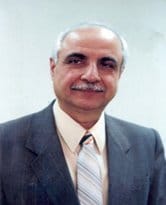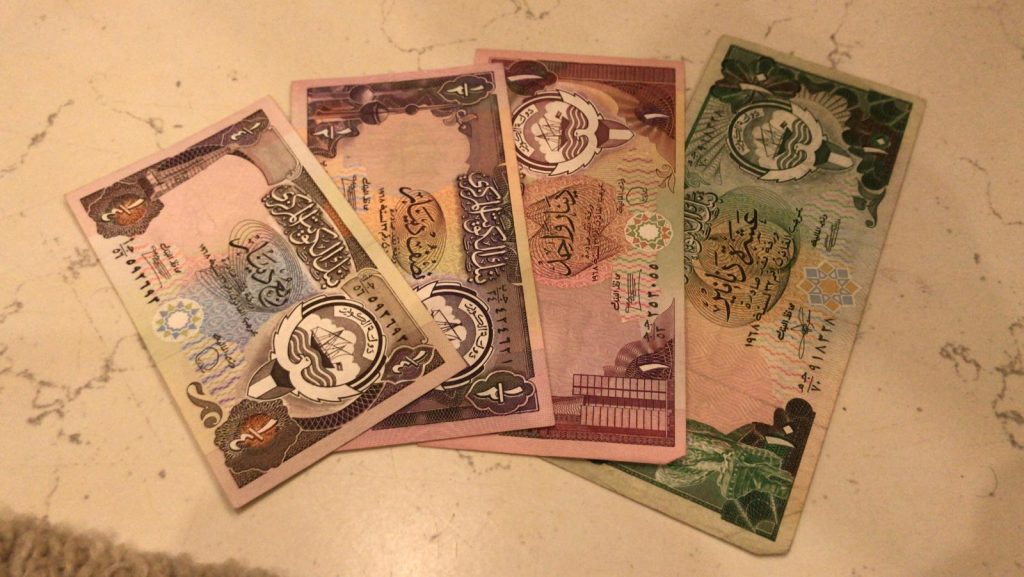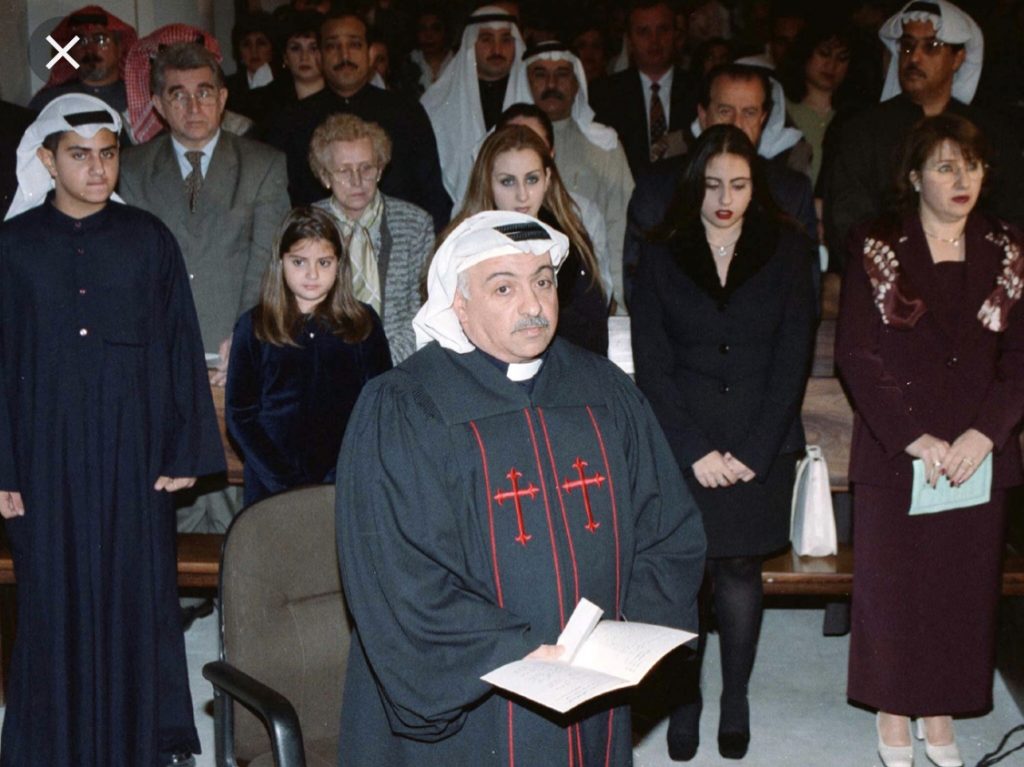On the 16th of February 2019, I sat on my desk and began staring intensely at the face of a distinguished middle-aged man with a mustache and a slightly bald head. This was the face of my uncle Faisal Almedej, aged forty-three, who lived in Kuwait. However, his image seemed to be a little bit different from our video calls since he looked uneasy in spite of having expressed great excitement when I requested him for an interview. Family ties play a significant role in my culture as a way of maintaining strong bonds with members of our extended family. Though I did not have a strong connection with Faisal, I knew him from my parents. Also, I knew that he had a family and worked as a mechanical engineer. Faisal was a hard working person and was committed to his family since he wanted the best for his family. I knew my cousin Faisal as a staunch Christian unlike most of the family members who were Muslim. Religion isolated Faisal from my family members, and it always made him stand out from our family members and relatives during social gatherings.

Faisal’s Uncle, Nasser Al-Shawe. All rights reserved.
I started our interview by asking him to tell me a little bit about his personality. During the introduction, Faisal stated that he felt different from the rest of the Kuwaiti society because of his Christian roots. I asked Faisal to tell me about a scenario when his Christianity made him feel insecure and discriminated by the Kuwaiti society. Faisal took a deep breath before answering the question since he had a lot of stories to share. I could tell by looking at his eyes that he wished I never brought up that question in our interview. He sighed deeply and began sharing some of the events that had happened to him at the age of twenty. He began by narrating the 1990 Gulf War wherein everybody knew that Iraq had invaded Kuwait (20:40). Faisal narrated this event without emotion since he was furious with the events that took place. His voice changed when he began talking about the invasion of Iraqi forces in Kuwait. He was filled with emotion while talking about how Saddam’s forces hated Shia Muslims in Kuwait. This hatred forced the Iraqis to expel the Kuwaiti Shia’s forces from their houses and started killing them.
During our interview process, I was horrified by the events that Faisal was narrating. I had read about the Iraqi in 1990 which resulted in the Gulf War. I did know that my cousin was affected by the Gulf War since the Iraqi soldiers were intolerant of religious differences because they were Sunni Muslims who were targeting the Shia Muslims in Kuwait. During our interview, I kept wondering how the Iraqi forces would treat a person ruthlessly since he was not a Muslim. Faisal went on narrating the events that took place and uncovering all the hidden secrets done by Iraqi forces. Faisal stated that the Iraqi forces received information that Kuwait had a small population of Christians living there. His voice changed as he said the next words because Iraqi soldiers kicked them out of their house and either killed them or enslaved them. I could not imagine the horror of being in a war zone where your enemy wants to kill you because of your religion.

A portrait of Uncle Ameen, a teacher during the occupation. All rights reserved.
Faisal continued talking about how the Iraqi forces were taking control of his neighborhood. Iraqi soldiers used heavy arm machinery such as tanks that shook the earth when they patrolled the streets as a show of strength to the helpless Kuwaiti residents. Faisal stated that the Iraqi forces who kicked him out of his house were no ordinary troops since they wore red caps that identified them as elite soldiers. During their patrol search in Kuwait, the Iraqi forces provoked images of the ruthless elite SS Nazi troop. Faisal was captured by Iraqi forces after they discovered that his father was a Christian. He was then taken in as a slave and was forced to work at the bakery where he was assigned to prepare food for the army.
I kept asking myself why the red-capped Iraqi forces were ruthless to my cousin. Faisal stated that the soldiers had motives of using force to kill or enslave Christians. One of the major reasons was that they had bad blood towards Kuwait since they wanted to take their wealth. Saddam wanted to overthrow the government, subjugate its people, and proceed to collect revenue from the Kuwait oil reserves. The second reason was because of the religious differences between the forces and the Kuwait residents. According to Faisal, the Iraqi forces were ruthless to the Kuwait residents because of their differences in religion. Therefore, they did not care how they treated people living in Kuwait. In our interview Faisal stated that he hates Iraqi soldiers since they took his country and killed more than 400,000 people including women and children (27:51). Faisal recounted how the Iraqi forces used violence to instill fear in Kuwait residents by mistreating them and killing them. He said these words with tears filled in his eyes when giving an account of how he witnessed Iraqi forces hanging old men and women on the streets.

Kuwait currency during the invasion, All rights reserved.
I had never considered the deadly impact of intolerance. This is because I viewed intolerance as an undesirable act in our community since it violates the rights of other people. In my opinion, intolerance stops society from benefiting from the social and economic growth of our homeland. Listening to Faisal, I discovered that religious prejudice could lead to mass genocide in our communities. For instance, Hitler used racial differences of the Jews to justify their internment in concentration camps as well as defending the killings that took place during the Holocaust. The Iraqi forces used their faith differences with the Kuwait Shia’s and Christians to justify their slaughter and their inhuman behavior.
Faisal was more than willing to share with me about the hard times he had suffered. He stated that despite being mistreated and forced to live in a deprived environment, he was forced to work at the bakery to cater for his mother and to ensure that other Kuwait families had something to eat. He recalled how each Kuwait family played its role in ensuring that they survived. Faisal’s closest friend, Saad, committed himself to keeping the neighborhood clean by removing the bullets and shells that littered the streets. His father joined the foreign troops in fighting the Iraqi forces that had taken control of Kuwait.

Shells collected by Faisal’s cousin after the Iraqi invasion, All rights reserved.
I wanted to find out how the Muslim Kuwaitis treated Faisal during this troubled time of the country. Faisal stated that everybody was committed in ensuring the survival of the homeland and differences went unnoticed. Faisal smiled as he remembered how his Muslim neighbors worked together with him and treated him with a lot of respect. According to Faisal, the Gulf War brought them closer and made them better as a whole than the invasion since they worked and lived together and identified each other as Kuwaiti citizens (18:07). These words filled me with great hope since it meant that the prejudice that people had could be overcome. I questioned myself whether the situation had gotten better for him after the end of the Gulf War. I asked Faisal to share with me the greatest challenge he faces today as a Christian in Kuwait (20:10). Faisal said that the biggest challenge today is that Kuwait residents do not understand the importance of diversifying our societies (21:21). Faisal gave an account of an event where he informed people that he is Christian. His feeling of not being accepted in society was so great that he felt like relocating to a different place. Faisal stated that the idea of him moving was rooted in the hope that one day people would learn to be tolerant and treat each other with respect and consideration, regardless of their religion.

As he continued speaking, I kept on asking myself why society was unfair to Faisal. He was a person who was loyal to his country and proved to be a true patriot during the Gulf War where he used his position as a baker to provide food for his neighbors. Faisal’s sister, who is also a Christian, used her position in the broadcasting station to leak important news to Kuwait residents who were at a greater risk if the Iraqi forces found them. Faisal discovered that during the difficult time in the country’s history, he had been treated as a brother and friend by his compatriots. However after the war, his identity as a Christian had made him an object of discrimination. Kuwait residents did not remember how he had helped his neighbors by providing food and protecting them from the Iraqi forces. I felt ashamed when I realized that I was part of the problem. I treated everybody with respect, and part of fault rested on me due to the fact that I viewed Faisal’s family as different based on their faith. Faisal’s family did not celebrate the special Islamic religious holidays or go to the mosque. This situation made me realize how my perception towards Faisal affected his being as well as his identity in society.

People should be more accepting of different cultures in our communities. We must understand that each person is entitled to follow his own religious path. People should not be victimized for exercising their freedom of religion. Instead of being prejudiced against people who are different from us, we should treat them with consideration since they are part of the human family. We should judge them based on their actions and character. Therefore, I believe that we should develop an inclusive society which accepts people regardless of their tribe, gender, religion or culture. Also, we should increase our exposure to people who come from different cultures and religious backgrounds because it will help us identify the common values we share as humans. This will help us create a society that accommodates everyone regardless of their religion. Also, it will help in addressing the social injustices taking place in our communities and how people can live together regardless of their religious perspective.

Discrimination of people on the basis of religion has been rampant in the society today. This article was written by Hamad Almedej and it narrated the religion during gulf war 2.This is so especially among Christians and Muslims, the two religions have never accepted their differences. There are various instances where Christians are mishandled and mistreated in the hands of their Muslim friends. This is evident in the interview where Faisal narrates some instances he has been discriminated due to his religion as a Cristian. The article explains that, “His feeling of not being accepted in the society was so great such that he felt like relocating to a different place.” (pg., 6) This are just but some of the instances where people feel insecure from the effects of being discriminated by fellow friends who happen to be from a different religion. Besides, even after Faisal had helped the Muslim friends during Iraqi invasion, they still rejected him and his family; “Kuwait residents did not remember how he helped his neighbors by providing food and protecting them from Iraqi forces.” (Pg., 6). People never repay the good deeds done to them during the time of need, the Muslims forgot how Faisal had helped them despite of being a Christian, they rejected and termed him as an outcast in the society. People should and must stop judging people in the basis of their religion but rather do judge them in accordance to their actions, behaviors and the role they play in the society.
This blog, “A Kuwait Christian Man who worked in a bakery during the Iraqi Invasion” by Hamad Almedej, illustrates a sensitive topic of religious prejudice in our communities. It is an interview that claims religious prejudice brings destruction at a greater level such as mass genocide. It is still happening in our world. This text elaborates such events of religious prejudice and how this leads to create mass genocide. It is the story of a Kuwait Christian man who works in a bakery during the Iraq invasion. It is interviewed by Faisal that how this invasion leads to mass genocide. Before this Iraq invasion, Faisal was not treated appropriately among his social circle due to his Christian roots. It is said by him that Christianity made him feel insecure and discriminated by the Kuwaiti society. He gave reference to those of his family social gatherings. Then, it turned out to the next level. It was the Gulf war that was purely between Shia and Sunni Muslims. The Iraqi soldiers took charge of the area and then they attacked Christians who were living there. It is not easy to tolerate such discriminations that are based on religion. It was actually happening with Faisal. This war and the story of Faisal numerate that our world is still facing such issues from religious discrimination and prejudice. This blog directly addresses the issues of religious discrimination. There are many events in which Muslims are not treated well and discriminated. In the same way, it also happened to Christians.